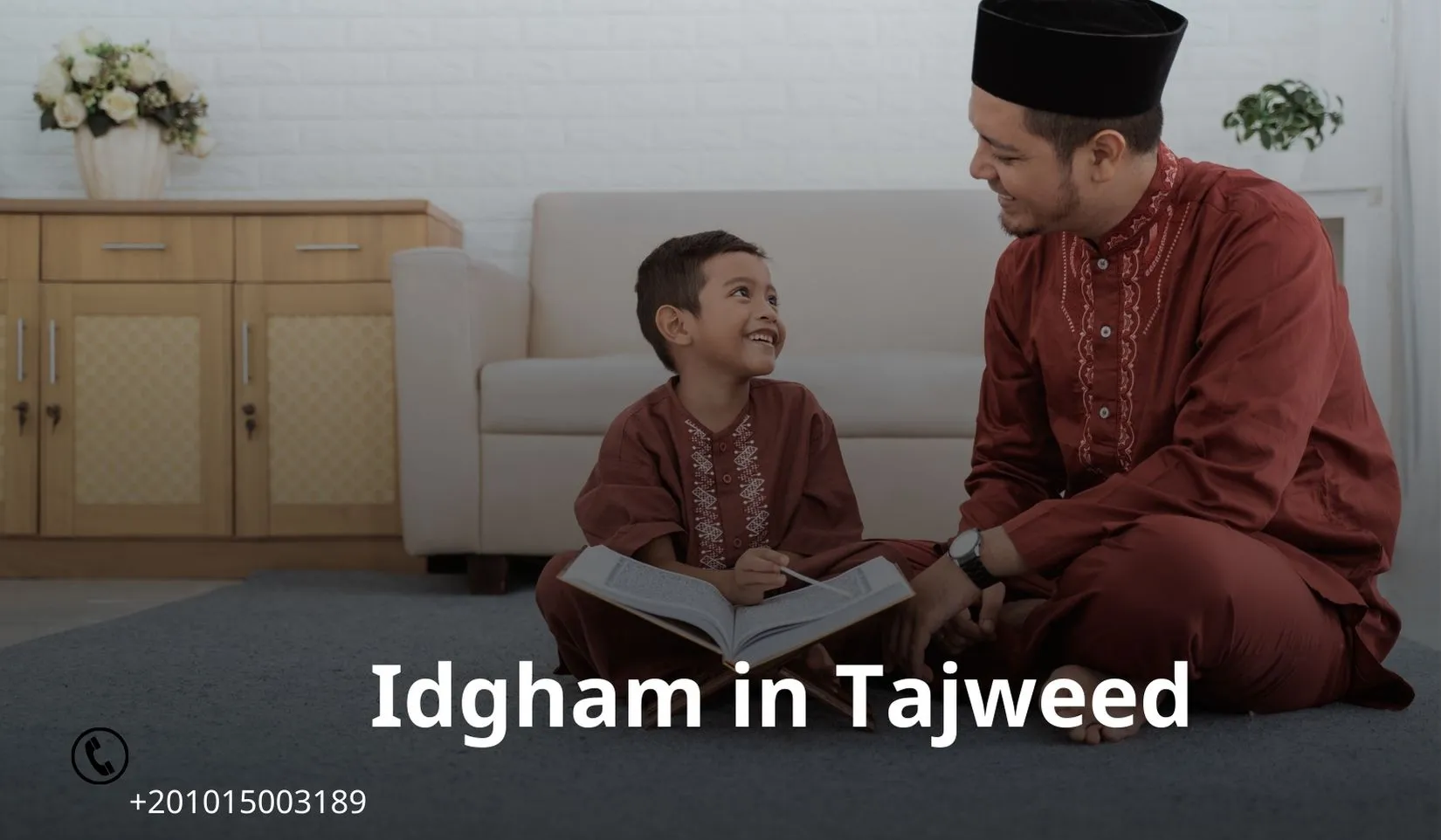What’s the Best Age for Learning Quran Online? Many parents and learners ask this important question when starting the sacred journey of Quran education. With the rise of online learning platforms, it’s now easier than ever to begin at the right age and pace. In this article, we’ll explore the ideal age to start, the benefits of early memorization, and how online classes can be tailored to suit every stage of a child’s development.
What makes early childhood the perfect stage to begin memorizing the Quran?
Scientists say that a child’s brain works at full power during this time, any piece of information they hear sticks quickly and doesn’t go away.
That’s exactly why memorizing the Quran during early childhood is one of the best gifts we can give our kids.
To improve pronunciation, combining memorization with an Arabic Language Course Online is very helpful — especially for beginners.
1. Information enters quickly and stays
A young child can memorize something just by hearing it a few times. Suddenly, you find them reciting a verse on their own. That’s because there’s no pressure, and their brain is fresh and quick to learn.
2. Their speech is still developing
So, if they start hearing the Quran early, their pronunciation becomes strong. They get used to the sounds and correct letters from a young age, and this helps them recite fluently, without mistakes.
3. Love for the Quran starts early
The Quran isn’t just about memorizing, it’s about building a relationship. When the child hears the Quran at home, in the car, or before sleep, they begin to feel connected to it and love it without being forced. That love makes memorizing enjoyable.
4. No pressure or comparisons
At a young age, kids don’t compare themselves to others or feel embarrassed if they make mistakes. That helps them learn in a stress-free environment, which is the best kind of learning.
5. Good habits start young
If a child gets used to having a daily time for the Quran, it becomes part of their routine, just like eating or sleeping. And that’s the secret to long-term success.
Can a 3-Year-Old Child Start Memorizing the Quran?
Yes, absolutely, but we need to understand what “start memorizing” means at that age.
At 3 years old, a child’s brain works like a recorder. They hear and imitate without fully understanding, and that’s completely normal. That’s why many educational studies say a child can begin memorizing very early if they’re exposed to the Quran in a soft and simple way.
We’re not going to sit them down and say, “Start memorizing!” not at all. We start in a very natural way:
We let them hear the Quran every day, repeat the same surah calmly with them, let them hear our voice or a reciter they enjoy, and with time, you’ll be surprised they start repeating on their own.
But how can they memorize if they can’t read or write?
At that age, children learn through listening and repetition. Just like they memorize cartoon names or songs they hear, they’ll memorize Quran the same way,if they hear it regularly and in an organized way.
This has been proven by real stories of mothers who started with their children at 3 years old and the results were amazing.
So, should we start without waiting for them to grow older?
Exactly. At this age, the brain is as they say “thirsty.” It wants to hear, learn, and copy. That’s why academies like Alwalid Academy recommend that the best age to start memorizing is between 3 and 7 years old.
Read about: Best Way to Memorise Quran

Is 6–8 the Ideal Age for Memorizing the Quran?
Simply put: yes, and that’s not just talk, This age, in particular, brings together two very important things:
-
The child’s brain is still fast at memorizing.
-
And their speech is clearer, and they can focus and think better.
So we’re talking about an age where the child is mentally and emotionally ready to memorize regularly, and even understand what they’re saying not just repeat.
Kids aged 6–8 benefit the most when their program includes a light and fun Tajweed Course along with storytelling-style explanations of verses.
Why is the age 6–8 especially important?
1. Habits are formed before age 9
A study from Brown University showed that daily habits are formed in children before they turn 9. So if you teach your child early to memorize a little every day, it’ll become a natural part of their routine, like eating or sleeping.
2. They can read and understand
At this age, the child has started reading, which helps them connect between the surah they memorized and the verses they see written in front of them, and that strengthens memorization.
If your child memorizes but doesn’t understand Arabic, a Quranic Arabic Course can help them connect the words to the meanings.
3. They can focus longer
Unlike a very young child who gets distracted quickly, a child aged 6–8 can stay focused for 20 or even 30 minutes — and that’s more than enough time to memorize and review.
4. They start asking and understanding the meanings
Children at this age don’t just memorize; they also start asking: “What does this mean?” and “Why did Allah say that?” This is a golden opportunity to explain and link memorization with understanding.
5. They can handle simple responsibilities
You can give them a daily task, like: “Today, you’ll memorize two verses,” and they’ll be happy when they complete it. That gives them a sense of achievement and motivates them to continue.
Learn Quran, Arabic, and Islamic Studies with certified teachers in fun, interactive, and personalized sessions. Join thousands of students around the world and begin your path today!
Which Surahs Shall a Young Kid Start With? Easy and a Great First Step
A very important question every parent asks: “Which surahs should I start with for my son or daughter? What’s the best place to begin?”
And the simplest answer is: Start with the very short surahs, the ones the child can memorize quickly and feel like they’ve accomplished something.
Why short surahs?
Because when a child memorizes something small and feels like they finished it, it makes them excited to keep going, and they get motivated each time.
These are the best surahs to begin with:
-
Al-Fatiha: because it’s the base of prayer, and the child repeats it daily.
-
Al-Ikhlas
-
Al-Falaq
-
An-Nas
-
Al-Kawthar
-
Al-Asr
-
Al-Ma’un (if the child is a bit advanced)
Start with one surah. Recite it in your own voice, let them repeat after you, and keep saying it with them throughout the day as if it’s a game.
If your child is just starting out, try a Quran Memorization Course that suits their age — so they can memorize gradually without pressure.
Why Is Memorizing the Quran at a Young Age So Powerful?
Because a child’s mind at a young age is like a blank page… anything written on it sticks quickly, and it shapes their personality, thinking, and behavior. Here are the reasons why memorizing at this age is a great treasure:
1. Memorization is faster and stronger
The child absorbs information quickly and stores it faster than any other age, especially if the memorization is linked to a familiar voice like the father’s or mother’s.
As memorization begins, pronunciation matters — that’s why a Quran Recitation Course helps kids pronounce every word correctly.
2. It builds love for the Quran from early on
Anyone who loves something from childhood continues with it for life. When they hear the Quran daily while they’re young, it becomes part of their day, life, and mind.
3. It helps with good behavior
The verses aren’t just words… they’re meanings, situations, stories, and wisdom. When the child memorizes them, they start to understand, ask questions, and get influenced.
So you hear them say things like “That’s haram,” “Allah said this,” or “I won’t lie.”
4. It strengthens their connection with prayer
A child who memorizes feels confident in prayer, recites during it, and feels proud.
This builds their connection with religion without pressure or commands.
5. It makes them feel special
When they see people saying “Masha’Allah,” or when they recite in the mosque or at home, it boosts their self-confidence and makes them feel like they’re doing something great.

What If My Child Starts Memorizing at 10 or Older?
The clear answer is: No, there’s no such thing as “too late” when it comes to memorizing the Quran.
The Quran was sent down as a guide for every heart, no matter the age or time. So whether a child starts at 3, 13, or even 30, as long as they have the intention and motivation, they can start and continue, God willing.
But let’s be realistic, a child who starts at age 10 or older might need different support than one who started younger.
If your child has started reading, enroll them in an Online Noorani Qaida Course — it helps build a strong foundation for Quran memorization.
So how do we solve this?
1. Start with a simple, clear plan
No need to memorize 5 verses a day in the first week. You can start with just one verse, or even half, but what matters is consistency and review.
2. Link memorization with things they love
For example:
-
Let them listen to a reciter they like.
-
Memorize together after a favorite meal.
-
Make it part of a relaxing time or a special moment between you and them.
You can help your child connect memorization with meaning by adding Learn Quran Tafseer Online to their weekly schedule.
3. Give them freedom to choose
Ask: “Which surah would you like to start with?” or “When do you want to memorize, in the morning or at night?” When they feel they have a say, they’ll be more excited to commit.
4. Use interactive methods
-
Apps with repetition and review
-
Reward charts or star stickers
-
Simple challenges: “If you memorize this surah before the weekend, you’ll get a gold star!”
Should we expect them to memorize as fast as younger kids?
Not necessarily, and they don’t have to. Every child has a different memorization pace.
What really matters is that the child follows a steady plan, reviews regularly, and feels their progress, even if it’s slow.
Have there been kids who started late and succeeded?
Yes, many! Some kids began memorizing the whole Quran at age 11 or 12, and some finished in two years, others took more time… but they all made it.
The only difference? Consistency, family support, and regular revision.
Signs Your Child Is Ready to Start Quran Lessons or Memorization

Before you think about enrolling your child in an academy or hiring a teacher, it's very important to ask yourself: "Is my child really ready? Or am I the one rushing?"
Children may be the same age, but that doesn’t mean they’re all ready to start at the same time. There might be a 4-year-old whose mind is sharp and heart loves listening to the Quran.
And another who is 7 years old but still not ready to handle even a small responsibility. That’s exactly why it’s important to look out for certain signs before beginning:
1. They like playing Quran recitations and listening without being asked
If your child turns on the Quran by themselves, reacts to a reciter’s voice, or asks “Who’s saying that?” that’s a strong sign.
It means their heart is starting to connect with the Quran.
2. They imitate or repeat without being asked
You find them hearing a verse and repeating it on their own, or finishing a surah you started, or saying: “I know this surah!”
That shows their ears are ready to receive, and their mind is naturally beginning to memorize.
3. They can sit focused for even 10 minutes
They don’t need to sit for an hour, but if your child can sit and listen to you or a reciter for a while without getting distracted, that means you can build on that focus and turn it into a memorization session.
4. They understand what “Quran time” means
If you say: “Let’s review a bit of Quran,” and they don’t get upset or say “No,” even if they’re not super excited, that’s readiness.
Readiness doesn’t always mean extreme excitement, it means the child accepts the idea and understands it has a set time.
5. They start showing interest in meanings or stories
If they ask: “What does this verse mean?” or “Who is Pharaoh?” or “Why did Allah say this?” that’s a strong sign they’re ready not just to memorize, but also to understand, and that makes the journey easier and deeper.
6. They’ve memorized something on their own
Even if it’s just a word or a short verse, especially from the small surahs. If your child tells you: “I know Surah Al-Ikhlas,” on their own, that means they’re ready to listen, repeat, and follow a simple plan.
7. They like imitating you or someone praying or reading
Children love to imitate, but if your child copies you while you’re reading Quran or stands next to you in prayer, that means you’ve opened a door, and they’re ready to walk through it.
8. They start asking: “When can I go to the mosque?” or “I want to read like that sheikh”
If this question comes from the child themselves, it means Allah has placed love in their heart, and all you need to do is gently encourage and start.
What if not all the signs are there?
It’s not necessary for all signs to show at once. Some children may show one or two, and the rest will come with time and encouragement.
The important thing is: don’t rush, and don’t apply pressure, Start little by little, and make Quran time something beautiful, not a duty or punishment.
A big part of success in memorization comes from interactive learning — something they get in Arabic Conversation Classes made for kids.
How to Choose the Right Quran Program by Age Group
Not every age is suitable for the same method, and not every child can handle the same pace.
Choosing the right program doesn’t just help the child feel comfortable, it makes memorization enjoyable, smooth, and effective.
If you choose wrong, your child might get bored or feel Quran is a burden, and then everything slows down or stops. Let’s look at the best approach for each age group:
Children under 6 years old:
At this stage, the child is like a sponge, absorbing everything around them. At that age, kids get distracted easily and usually choose playtime over sitting still for lessons.
Suitable Program:
-
Short sessions (15 to 30 minutes max).
-
Use repetition and simple melodic recitation.
-
Focus more on listening and interaction, not only memorization.
-
Parent participation is essential, the child imitates and enjoys their company.
-
Integrate memorization into their daily routine, like before bed or after breakfast.
Ages 6 to 8:
Now the child is a bit calmer, starts reading, and can better understand the idea of “Quran time.”
Suitable Program:
-
Organized sessions 2 or 3 times per week.
-
Start combining memorization with reading.
-
Introduce basic tajweed rules (like elongations or noon sakinah).
-
Keep encouragement and positive feedback consistent.
-
Start teaching them light self-review habits.
Ages 9 and above:
At this age, the child understands more, can take responsibility, and is ready to learn in a more structured way.
Suitable Program:
-
Clear weekly plan with memorization and revision.
-
Daily review, even if just 10 minutes.
-
Provide a clear schedule they can follow.
-
Teach them how to handle mistakes and correct themselves.
-
Ideally, they should have a qualified teacher for follow-up.
Learn more about: How to Learn Quran with Tajweed at Home
This table makes it easier to pick the right learning approach based on your child’s age
|
Age Group |
Session Duration |
Suitable Learning Method |
Weekly Class Frequency |
Parent’s Role |
Ideal Review Style |
|
Under 6 Years Old |
15–30 minutes |
Listening and repetition – fun & interactive style |
2 to 3 times a week |
Must attend with the child and help daily |
Light daily review with parents |
|
6 to 8 Years Old |
30–40 minutes |
Memorization with basic Tajweed rules |
Around 3 times |
Regular follow-up and encouragement (no pressure) |
Weekly review schedule |
|
9 Years and Above |
40–60 minutes |
Organized memorization – understanding meanings |
4 to 5 times a week |
Light supervision – give the child more responsibility |
Daily revision + monthly tests |
Many Quran courses online are designed for all ages — so even if your child is 3, 6, or 10+, there’s always a course that fits just right.
Common Mistakes Parents Make When Choosing the Right Time
Choosing the right time to start Quran memorization doesn’t just depend on age, it also depends on the child’s readiness. Here are the most common mistakes parents should avoid:
-
Starting too early before the child is truly ready:
This leads to boredom, refusal to continue, or quick forgetting of the verses. -
Putting pressure on the child from day one: Like scolding them for forgetting or comparing them to others, this reduces motivation and makes memorization feel like a burden.
-
Relying completely on the teacher: When the parent doesn’t offer support or follow-up at home, the child’s daily connection to the Quran becomes weaker.
-
Comparing the child to others: Every child has their own pace, and comparisons negatively affect their confidence and love for memorizing.
-
Setting high expectations from the beginning: Like trying to memorize long surahs or large portions in the first week, this makes the child feel like they’re failing.
Read about: How to Improve Your Quran Recitation
Is There a Age Too Late to Learn Quran Online?
The answer with full confidence is: No, there’s no such thing as “too late” in memorizing or learning the Quran.
Whether you’re 15, 30, or even 60 years old… as long as your heart is alive, your tongue can speak, and you have the intention, then you can start today before tomorrow.
There are people who started memorizing at 40, and others who finished the Quran after 60, and they all say the same thing: Part of me wishes I began sooner, but I’m truly grateful I started when I did.
Don’t worry if your child is older, there are Quran Classes for Adults designed for late beginners at all levels.
So why can adults also learn?
Adults have something kids usually don’t, a mature mind that helps them grasp the meaning behind what they’re memorizing, not just say the words.
They’re often more self-motivated, which means they can stick to their goals without needing constant reminders.
They have life experience, which helps them connect verses with real-life situations.
They have spiritual awareness, which makes them reflect on meanings, not just memorize them.
So every verse memorized isn’t just knowledge… it becomes light in the heart and a path toward guidance.
But do adults memorize as fast as children?
Usually not, and that’s completely normal. A child memorizes fast, but forgets fast too.
An adult may memorize slower, but what they memorize sticks better and is understood more deeply.
The key here is: consistency, If you memorize just one verse per day, you’ll have 365 verses in a year.
If you memorize five verses a day, that’s a full khatma (completion) in less than a year!
Advice Before Starting to Learn the Quran Online for Kids
Before your child starts online Quran learning, there are a few important things to pay attention to. These tips can make the whole experience smoother and more effective.
1-Prepare the right environment
Choose a quiet space with no distractions. Make sure the internet is stable and that your child has a good device to use, whether it’s a phone, tablet, or laptop.
If your child gets easily distracted, using comfortable headphones can help them stay focused.
2-Set a fixed schedule
Having a set time for Quran learning helps your child develop a routine.
Avoid scheduling sessions when they’re tired or frustrated. It’s better to plan classes after a fun activity or a short rest, so they can come in relaxed and ready to focus.
3-Be involved as a parent
Sit with your child during their class or ask them what they learned afterward. Encourage them with simple praise like “I’m proud of you” or “Well done.”
Even if they only memorize one verse, your support makes them feel seen and appreciated.
4-Choose a qualified teacher or academy
Pick a teacher who has experience teaching kids and knows how to be kind, patient, and engaging. It’s even better if they’re certified or part of a well-known academy.
A good teacher can help your child build a strong, loving connection with the Quran.
Learn more about: Quran Memorization Schedule
Learn Quran, Arabic, and Islamic Studies with certified teachers in fun, interactive, and personalized sessions. Join thousands of students around the world and begin your path today!
Factors On Which The Time Taken To Learn And Memorize The Holy Quran Depends
Many people ask: Why does one child memorize in a year, and another in three? Is my child slow? Or is there something wrong?
And the answer is always: it’s not just about "intelligence" there are many factors involved. Here are the most important ones:
1. The child’s gender (boy or girl)
Some studies say girls are sometimes calmer and memorize faster, while boys might have more energy… so it’s not about who is better, but rather about what method suits each one.
2. Daily routine
A child who has structure in their day and memorizes daily, even just 10 minutes, will definitely finish faster than a child who memorizes one day and skips the next two.
3. Teaching method
If the teacher explains gently, in a simple way, and repeats in an enjoyable style, the child will memorize faster.
But if the method is boring or full of pressure, the child will either take longer or start to dislike memorizing.
4. Language background
If the child speaks Arabic fluently or is used to hearing the Quran since they were young, that makes it easier.
But if the language is difficult for them, we’ll need to support them more with pronunciation and meanings.
5. Support at home
This is one of the most important points! If the family encourages, listens to the child, and celebrates every achievement, even if it’s just one verse, the child will feel motivated and keep going.
But if there’s no encouragement, or constant comparison and pressure, it will negatively affect their progress.

Steps to Learn Quran Online for Kids
Nowadays, the internet has opened great doors… you can help your child memorize from home, in their own voice, at their own pace, and in the way that suits them best.
But for the experience to succeed, you need to follow some simple, organized steps:
1. Assess the child’s level in language and reading
Before anything, we must know: Can my child read? How long can they focus?
If they’re still young or can’t read well, we start with listening and repetition. If they can read, we can begin memorization with tajweed.
2. Choose a suitable academy based on their age
Not all academies are right for every age, A 5-year-old is different from someone who’s 9 or 12.
Choose a place that offers different levels and truly understands children’s psychology.
3. Short and regular sessions
It’s better to start with light sessions, around 15 minutes, but make sure they are consistent and regular. It’s not about how much you memorize, but about how well you retain it and keep the habit going.
4. Weekly review
Every week, the child must revise what was learned. Review helps the memorization stick and lets the child feel they are really making progress.
5. Simple tests and small rewards from time to time
For example: every time they finish a surah, make a fun “Quran day.”
Or put up stars or a progress chart.
These small rewards give strong emotional motivation and make the child love what they’re doing.
How to Stay Committed to Your Memorization Schedule?
A lot of us start with excitement, we write a nice schedule, download the mushaf for memorization… and after a week, it all disappears.
Why? Not because you're not capable, but because consistency needs a few smart tricks, not just good intentions.
Here are 3 simple methods that, if you apply them, you'll find yourself following your schedule without boredom or procrastination:
1. Link Memorization to a Daily Habit (Habit Stacking)
What does that mean? It means you place memorization right after a habit you already do every day.
For example:
-
Memorize right after Fajr prayer
-
Or after you drink your coffee.
-
Or right after you’ve dropped the kids off at school and have a quiet moment.
This way, your brain links memorization with something fixed in your day, so you stay consistent without forgetting.
2. Use Reminders and Rewards
Forgetting is normal, no problem. That’s why you should use simple reminders:
-
Set a daily alarm named “Your Mushaf Is Waiting”.
-
Or stick a note on your room door with your favorite ayah.
-
Every time you complete a section or stay consistent for a full.
The mind responds well to small rewards, they can keep you going and make the habit stick.
3. Stay Connected with Someone Who Motivates You (Hifz Buddy or Online Mentor)
When you’re alone, your motivation might weaken. But when you have someone with you, everything changes.
-
Agree with a friend to memorize together and review for each other.
-
Or register with a Sheikh online who listens to you once a week.
-
Or join a Quran-focused WhatsApp group where everyone shares their progress and encourages each other.
The important thing is that someone asks you: “What did you memorize today?” A question that simple can spark your focus, it reminds your brain that you’ve made a promise and have a goal to reach.
Tips to Help You Choose the Right Online Quran Class for Your Kids from the First Time
Want to start online Quran memorization with your son or daughter? It’s an important decision… but it needs a bit of focus at the beginning so you can choose the right place.
It’s not just about “the cheapest option” or “the first name that shows up on Google.”
This is your child’s soul and their connection with Allah’s Book… so you have to choose wisely.
-
Pay Attention to the Teachers' Qualifications
Not everyone who can read Quran can teach it. Look for a place where the teachers have “Ijazahs in memorization” or “certified qualifications.” And more importantly: they must have experience with kids.
-
Check the Teaching Method
Does it rely on repetition and interaction? Does the teacher use videos, pictures, or visual styles?
Kids are affected by what they see and hear… so if the method is boring, the child will disconnect and won’t continue.
-
Ask for a Trial Lesson Before You Commit
Let your child attend one class and observe:
-
Did they feel comfortable with the teacher?
-
Were they happy?
-
Did they understand what was required?
-
The trial class will tell you everything before you pay anything.
Choose Al-Walid Academy If You Want Real Quran Learning
Al-Waleed Academy doesn’t just teach… They care for every child according to their age and learning style, and they involve you as a parent every step of the way.
Why Choose Them?
-
Their curriculum is customized for every age group.
-
Teachers have certified licenses and Quran Ijazahs.
-
They use fun and interactive teaching methods.
-
Parents are regularly updated and guided.
-
Class times and plans are flexible based on your child’s needs.
Features:
-
A curriculum designed by age: A 4-year-old isn’t like a 9-year-old… each age has a suitable method.
-
Parental support: You’re not alone, the teachers talk to you, guide you, and give you tips to follow at home.
-
Certified teachers with Ijazah: Specialized people, not just someone depending on personal experience.
-
A modern and comfortable online system: The platform is easy to use, class times are flexible, and communication is clear and fast.
Al-Waleed Academy = Professional education + a warm Quranic environment + comfort for parents.
Call us at: +20 15 56075371
And take the first step for your child toward memorizing the Quran, with people who truly understand and care.
Conclusion
What every father and mother need to know is that there’s no one “fixed age” to start memorization… There’s no exact number we can say “this is the perfect age.”
But what’s certain is: the earlier you start, the higher the chances of success.
But starting isn’t just about age… The right beginning needs a few key things that must exist in the child:
-
They should be emotionally and mentally ready, meaning they’re willing to listen and try.
-
They should have basic language ability (even if they don’t speak fluently, they understand and respond).
-
There must be real support from parents, not just during class, but also at home.
-
There should be patience and consistency, because memorization isn’t a race, it’s a long journey that needs daily encouragement.
If all these things are available, then the right time is… today.
It doesn’t matter if your child is 3, 5, or even 10 years old, What matters is starting in the right way, in a safe environment, with people who understand your child and know how to make them love the Quran before memorizing it.
And if you’re still confused about where to start, Al-Waleed Academy is ready to walk with you step-by-step, and help you make memorization an enjoyable experience for your kids, not pressure.
FAQs
Should I start with reading or just listening?
For younger kids, you can start with listening and repeating. When they begin to read, you can add memorizing by reading and writing.
What’s the best number of sessions per week?
For kids under 6: 2–3 sessions per week, from 6 to 8: 3 organized times, and from 9 and up: 4–5 sessions, whatever fits you.
How do I know if my kids are ready?
If they enjoy listening to Quran by themselves, ask you about the verses, or copy the reciter without being told, then they’re ready and it’s time to start your journey together.
Do I have to follow up with them every step?
You need to be involved at the beginning. After some time, you can let them depend on themselves and step in for encouragement when needed.
Is having an online teacher necessary?
If you don’t know Tajweed well, an online teacher will be a great help. But if you can support your child, you can start on your own.


